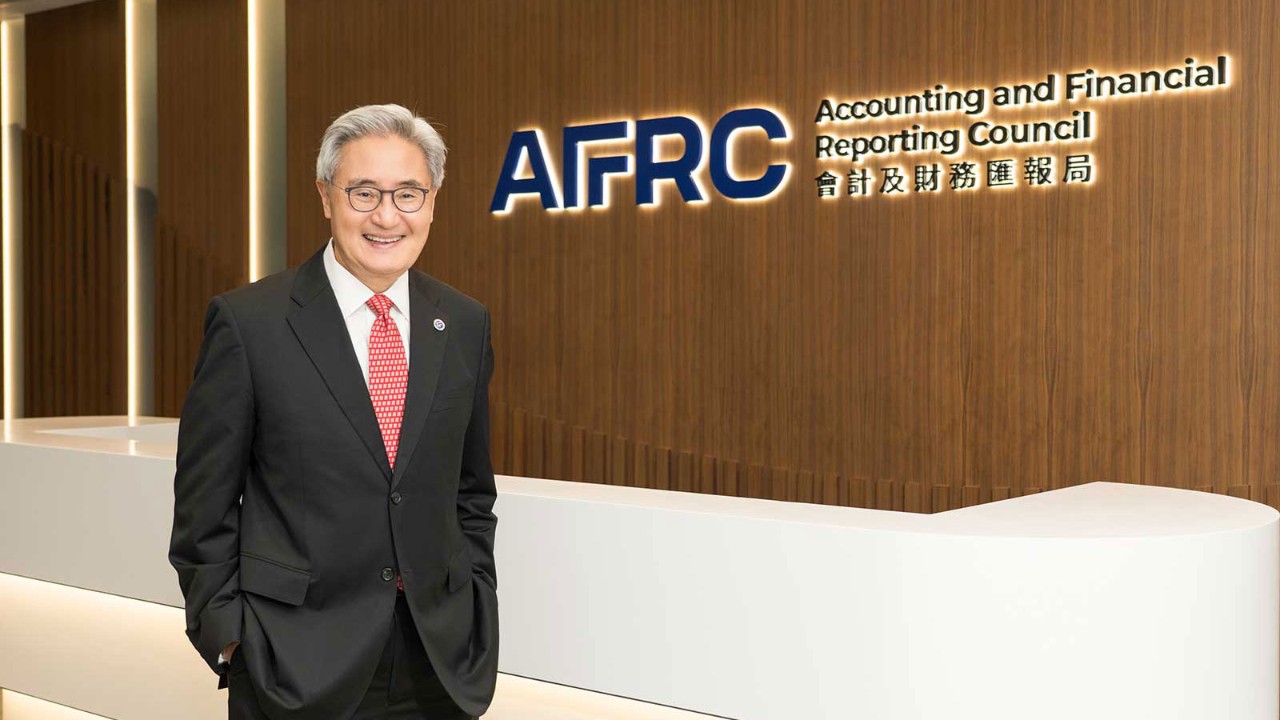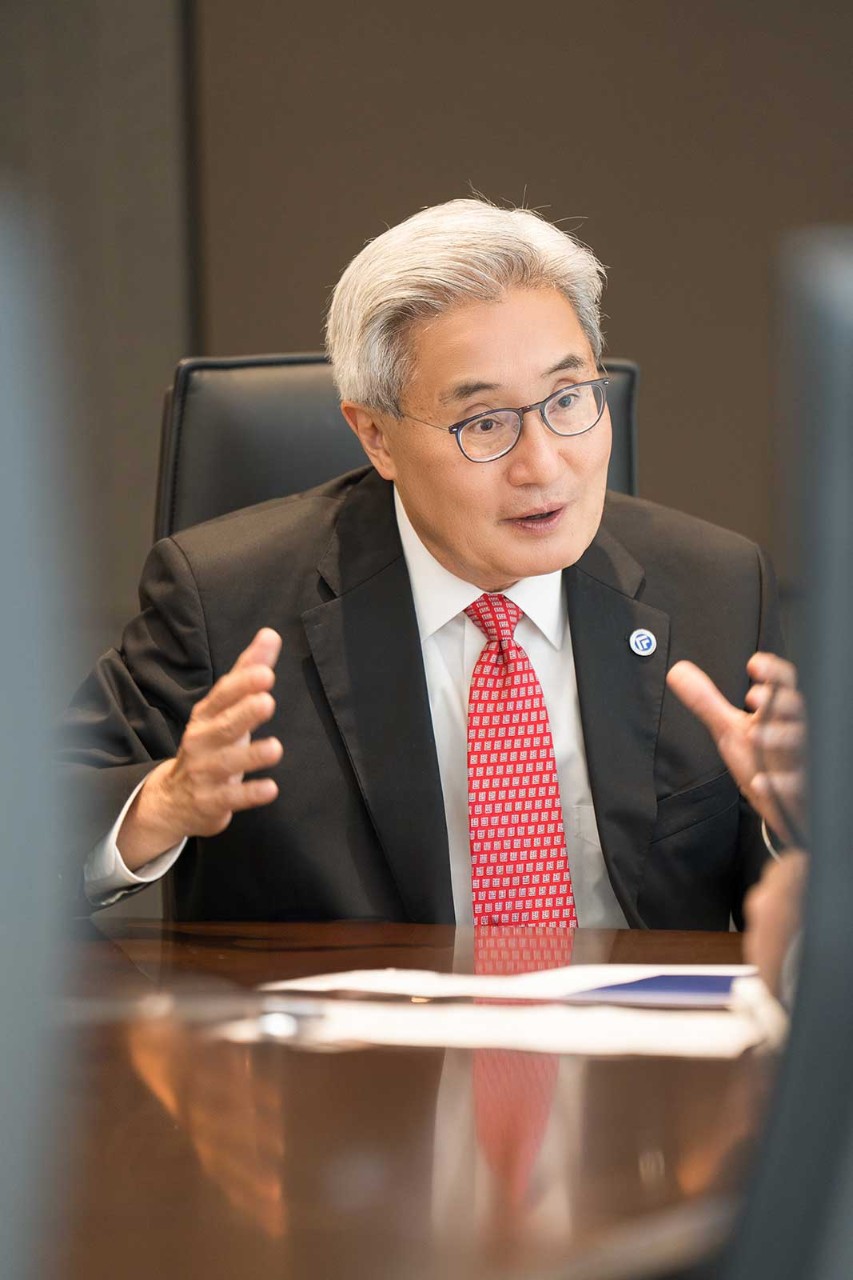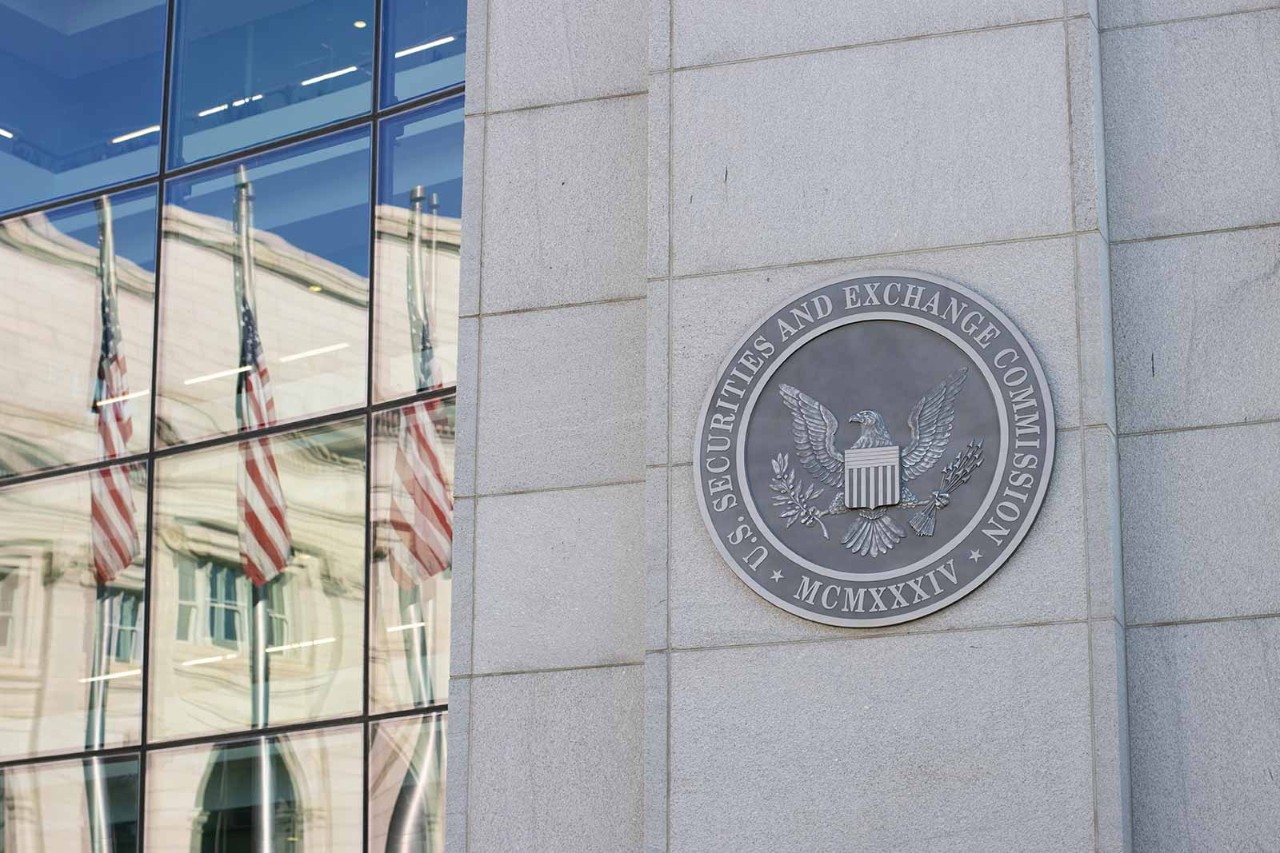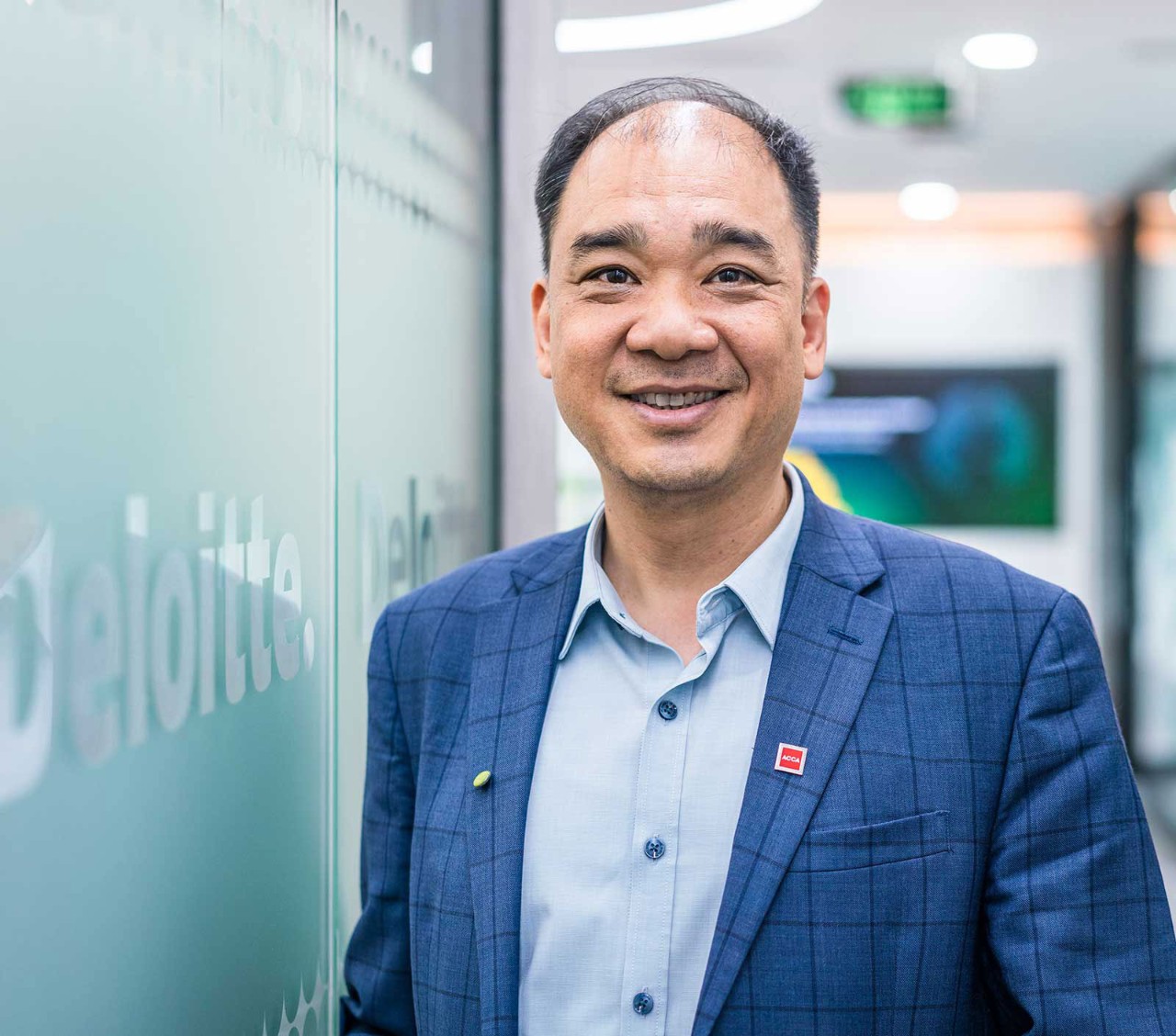
Six years have passed since the Hong Kong Accounting and Financial Reporting Council (AFRC) underwent a name change and became a full-fledged independent regulatory body for the accounting profession. Dr David Sun Tak-kei, the AFRC chairman, discusses how the Council has advanced its remit to include policy, licensing, inspection, investigation and enforcement functions. He acknowledges the groundwork laid by his predecessors and notes that, as the regulatory landscape continues to evolve, much remains to be done.
Appointed chairman in January 2025, Dr Sun is relatively new to the role but brings extensive experience from 33 years in senior leadership at EY. His background in public service includes six years as director of audit, Hong Kong SAR government, along with various non-executive roles across NGOs, universities and statutory bodies. This diverse experience positions him to navigate the complex challenges and opportunities within the auditing and accounting sector.
He cites global developments, such as the recent tariff disruptions imposed by the US, as examples of the external challenges affecting the profession. These shifts threaten globalisation but also create opportunities for accountants to assist clients in restructuring supply chains and addressing trade complexities.
‘The integrity of financial reporting is a key trust factor for market participants’

Market integrity
Following the reform in 2019 that expanded the AFRC’s powers to oversee auditors of listed companies, the AFRC now regulates over 48,000 certified public accountants (CPAs), including more than 5,000 practising CPAs and over 1,800 firms in Hong Kong. Dr Sun refers to the AFRC as the industry’s ‘watchdog’, charged with aligning local practices with international standards and supporting Hong Kong’s status as a premier global financial centre. ‘While we are mindful of our statutory duties, we are watchdogs – not bloodhounds,’ he says.
Dr Sun emphasises that the AFRC’s commitment to protecting the public interest is anchored in one non-negotiable principle: maintaining audit quality. ‘There is zero tolerance on that front,’ he states. The AFRC also plays a vital role in upholding trust in Hong Kong’s financial markets by ensuring auditors meet professional and reporting standards. ‘The integrity of financial reporting is a key trust factor for market participants,’ he adds.
Future of the profession
A major focus of the AFRC’s strategic priorities 2025–27 is the development of the accounting profession itself. As Hong Kong’s market grows more sophisticated, new opportunities are emerging for accountants to deliver greater value while upholding ethical standards.
Key areas of development include regulatory enhancement as well as promoting a robust governance ecosystem built on quality financial reporting and responsible auditor selection. The Council is working with other regulators and subject matter experts to equip the AFRC team – now over 140 professionals – with the skills needed for emerging fields such as cryptocurrency, virtual assets and blockchain.
‘The profession is evolving, and we must find new ways to showcase its relevance’
Technology plays a crucial role in this evolution. The AFRC is exploring AI and other digital tools to improve data collection, analysis and the efficiency of statutory functions. ‘Technology is transforming the audit profession,’ Dr Sun notes. ‘It is making the profession more analytical, and while it replaces repetitive tasks, it also demands a blend of technical expertise and soft skills, such as communication and project management.’
Despite these changes, Dr Sun reaffirms that the core principles of auditing – objectivity, integrity and professional scepticism – remain unchanged. Hong Kong’s unique position as a bridge between mainland China and global markets, along with integration into the Greater Bay Area, offers distinct career opportunities for the next generation.
‘We need to communicate to young people that an auditing qualification opens many doors,’ he remarks. ‘The profession is evolving, and we must find new ways to showcase its relevance.’
Emerging risks
Dr Sun cautions that economic uncertainty can pressure companies to view audits as mere compliance formalities. He warns against ‘low-balling’ – or underpricing – audit services to win business, which could compromise audit quality and cause reputational harm. ‘We do not want fee pressure to be the root cause for cutting corners,’ he explains.
‘We want all stakeholders to know: we are paying close attention’
Another concern is the changing of auditors close to reporting deadlines. To address the issue, the AFRC has engaged audit committees and listed companies to reinforce the importance of good governance while understanding the operational challenges.
‘These are not abstract issues,’ Dr Sun emphasises. ‘As the regulatory watchdog, we want all stakeholders to know: we are paying close attention.’

